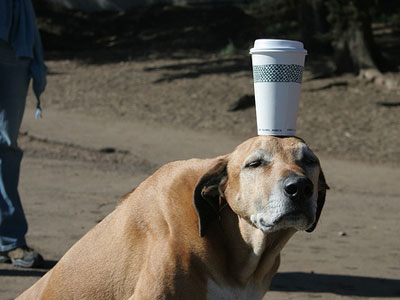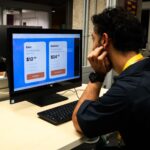Starbucks has a reputation for jumping into American public policy. The company’s CEO Howard Schultz vowed to hire more veterans last year and launched a petition to end the government shutdown in 2013.
Now, Starbucks is delving into what many would consider a more polarizing issue: race relations in America.
The Seattle based coffee company’s new campaign “Race Together” launched across the United States on Tuesday. It encourages Starbucks employees to engage in conversations about race with their customers.
To start the dialogue, baristas are required to hand write “Race Together” on their patrons’ cups.
“We at Starbucks should be willing to talk about these issues in America,” Schultz said in a company press release. “Not to point fingers or to place blame, and not because we have answers, but because staying silent is not who we are.”
In addition, Starbucks partnered with USA TODAY to create a special supplement on race relations, which will be available on Friday. The section will include conversation starters on race like a fill-in-the-blank question: “In the past year, I have been to the home of someone of a different race ___ times.” Starbucks is also taking out a full-page ad in the New York Times to spread awareness about its campaign, according to the press release.
As you could imagine, many people on Facebook and Twitter questioned the campaign’s validity. Vanity Fair, meanwhile, questioned the notion of asking baristas to engage in such a polarizing conversation with patrons who probably just want their morning coffee. If you’ve ever been to a Starbucks in Midtown Manhattan, the thought of asking caffeine-deprived New Yorkers to talk about race in the morning might be a scary notion.
You can read a great compilation of some of those posts, like this comment from a Twitter user: “Not sure what @Starbucks was thinking. I don’t have time to explain 400 years of oppression to you & still make my train. #RaceTogether.”
Also, are Starbucks baristas really the best people to be engaging Americans about race relations? Talking about race, gender, ethnicity and privilege with family is a difficult thing to do, let alone talking with strangers. The discussion typically requires some sort of training or education.
Beyond their lack of training, Starbucks employees themselves have a mixed track record with race.
In 2012, for instance, one of the company’s baristas drew “chinky eyes” to identify a Korean-American’s drink. More recently, a barista wrote “China” on an Asian customer’s order.
It’s also unclear if Starbucks in participating stores like Target, Safeway and Kroger will participate in the “Race Together” campaign. Our own Micheline Maynard told me that a Starbucks store on Arizona State University’s downtown campus declined to honor a two-for-one tea promotion that the company had marketed heavily to holders of its Rewards card, and on its website.
According to the barista, that promotion is only offered in traditional Starbucks stores. It’s possible that the same policy could be applied to the “Race Together” campaign.









